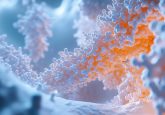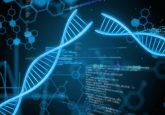Troubleshooting LC–MS: meet the instructors of the ASMS short course

Since 2013 the short course teaching best practice for maintaining and troubleshooting LC–MS systems has been delivered at the ASMS conference. Ahead of the virtual ASMS 2020 Reboot, we caught up with the course instructors to see what’s new and find out the impact of the online format.
‘LC–MS: Practical maintenance and troubleshooting’ the 2-day short course at ASMS 2020 Reboot is taking place Wednesday June 17 – Thursday June 18. A video recording of the course will be made available to registrants within 2 weeks of the live dates. Learn more here.
Meet the instructors:
Susan Abbatiello, Interim Director of the Barnett Institute of Chemical and Biological Analysis, Northeastern University, Boston, MA, USA.
Susan Abbatiello received her PhD in Analytical Chemistry from the University of Florida (FL, USA) under the supervision of Dr John Eyler, focusing on targeted detection of peptides in complex samples matrices using LC-SRM-MS (liquid chromatography-selected reaction monitoring-mass spectrometry) techniques. Susan’s focus has been on the technology and its evolution to support ever increasing detection of peptides and proteins in complex sample matrices for the advancement of biomarker detection using MS. Susan worked for 5 years prior to her PhD work at Genetics Institute (currently Pfizer, NY, USA) characterizing protein biopharmaceuticals for stability. Susan worked as a Research Scientist at the Broad Institute of MIT and Harvard (MA, USA) to develop targeted methods using LC-SRM-MS for the detection and quantitation of cancer biomarkers. She then worked for 4 years at Thermo Fisher Scientific (MA, USA) as a TSQ (triple stage quadrupole) Specialist and FAIMS (high-field asymmetric waveform ion mobility spectrometry) Product Manager to launch the FAIMS Pro device. Susan is currently working as the Interim Director of the Barnett Institute of Chemical and Biological Analysis where she oversees the daily operation of the MS Core Facility. Susan has a passion for troubleshooting and finding a way to fix problems as quickly as possible so that LC–MS researchers may spend more time on effectively researching their projects.
Will Thompson, Assistant Director, Duke Proteomics and Metabolomics Shared Resource, Duke University, Durham, NC, USA
Will Thompson received his PhD in Analytical Chemistry under the supervision of Professor Jim Jorgenson at University of North Carolina Chapel Hill (NC, USA), studying theoretical and practical aspects of liquid chromatography at ultrahigh pressures, including diffusion coefficients, mobile phase compression and band-broadening theory. He joined GlaxoSmithKline (PA, USA) as a principal scientist in Disease and Biomarker Proteomics in 2006, then was a founding member of the Duke Proteomics Core Facility in 2007. Will is currently a Research Assistant Professor in the Department of Pharmacology and Cancer Biology, and Assistant Director of the Duke Proteomics and Metabolomics Shared Resource. After spending a number of years developing and deploying novel approaches for label-free and post-translational modification analysis in proteomics, Will has focused the past 5 years on expanding metabolomics capabilities at Duke and deploying metabolomics in support of clinical and basic sciences, especially in Alzheimer’s Disease. Will and Sue co-chaired the ASMS LC–MS User Group in 2010–2011 focused in troubleshooting, and subsequently established the Practical LC–MS Troubleshooting and Maintenance short course in 2013.
Q Why is LC–MS such an important tool for bioanalysis?
Mass spectrometry (MS) is a wonderful and inherently quantitative technology to measure the molecular weight (via mass-to-charge, m/z) of analytes in samples. But so many analytes have the same m/z and compete for ionization, that we often see overlapping signals that cannot be teased apart. Liquid chromatography (LC) provides a time-based separation of sample introduction into the MS, so that the MS has incrementally semi-purified molecules to analyze, many at a time instead of hundreds or thousands at a time. In this way, the LC provides additional selectivity and sensitivity into sample detection and quantitation. The separation piece (of which we focus on liquid chromatography) generally improves the reliability and robustness of the measurement as well.
Q Can you please briefly summarize what kind of practical guidance you will be discussing in your short course?
We intend this course to provide guidance and troubleshooting techniques that the typical LC–MS-based researcher would utilize daily, weekly, and monthly. We begin by describing the basics of the different types of mass spectrometers and high-performance liquid chromatography pumping systems so that users can understand how to troubleshoot any potential issues and provide relevant feedback to service engineers. We provide workflows for walking through the symptoms of an instrument which is not operating normally, in order to find the specific, most likely cause of the problem. The goal is to encourage each attendee to learn and measure the performance of their LC–MS system all the time, so that they can recognize when the performance begins to deteriorate, requiring maintenance. There is no use having an LC–MS system running precious samples if one is uncertain of the performance of their LC–MS system. We provide suggestions and references for system suitability methods, log books, visual inspection of their systems (seems pretty basic, but you don’t know if you don’t look, listen, touch and smell for problems!). Is that vacuum pump running too hot? Is that turbo pump humming, or ringing? Do you see a small pool of solvent where it doesn’t belong? Does something smell like its burning? Check it out!!
You might also like…
Q What do you hope that attendees will gain from attending your course?
We introduced this short course in 2013 and we have tried to evolve it to provide relevant day-to-day understanding of how you should look at and treat your LC–MS system. Our goal is to give attendees a wealth of useful best-practices with respect to instrument upkeep and maintenance and arm them with the skills to find the specific, most likely cause of an instrument problem when it occurs. We believe using the techniques we teach will speed instrument repair and decrease downtime. We have observed that nearly 80% of the time a problem in LC–MS is due to problems on the chromatography side, which makes sense considering this is the portion which is most ‘assaulted’ with ‘dirty’ sample matrix. While we cannot provide specific advice for all isolated problems, we provide basic troubleshooting workflows for identifying the common causes of either LC or MS performance issues. Even if a lab has service contracts, often it is important to identify specific LC or MS symptoms that seem to be the issue and communication of this information to the vendor often results in minimized down-time. We take an interactive approach to teaching troubleshooting skills and we hope to communicate the approaches to our attendees in a way that helps them to have reliable and productive LC–MS systems.
Q ASMS 2020 has been shifted to an online format, what impact do you think this may have? What changes (if any) have you made to ensure your short course will be a great learning opportunity for all attendees?
The main shortcoming of teaching a course that is focused on troubleshooting LC and MS hardware is not being able to personally interact with the attendees. We will miss the in-person environment! The course was developed with many interactive sessions to get feedback from attendees and ensure they were capturing the relevant information presented as well as being able to ask questions specific to their lab environment. While the online format has presented challenges, we have made changes to attempt to maintain the ‘back-and-forth’ interaction of the course by providing Q&A sessions as well as quizzes and online polling to make sure people are understanding the content presented. This will certainly be a challenge, but with the help of our attendees we will make it ‘as close as possible’ to the in-person short course for LC–MS Troubleshooting and Maintenance that we can provide.
The opinions expressed in this feature are those of the author and do not necessarily reflect the views of Bioanalysis Zone or Future Science Group.
Our expert opinion collection provides you with in-depth articles written by authors from across the field of bioanalysis. Our expert opinions are perfect for those wanting a comprehensive, written review of a topic or looking for perspective pieces from our regular contributors.
See an article that catches your eye? Read any of our articles below for free.





